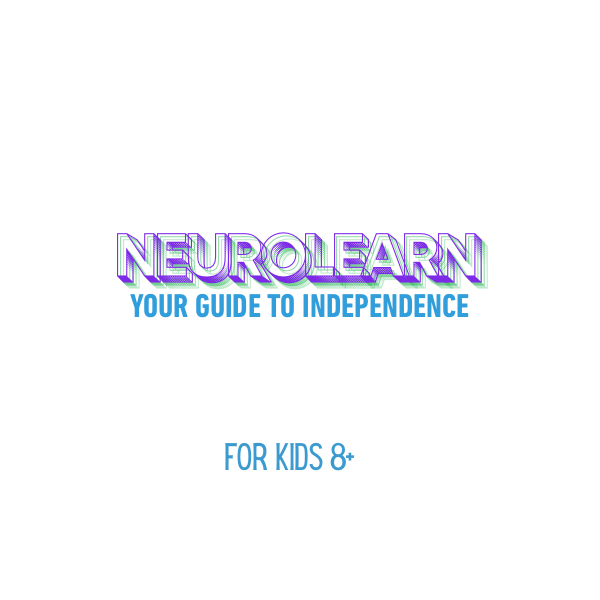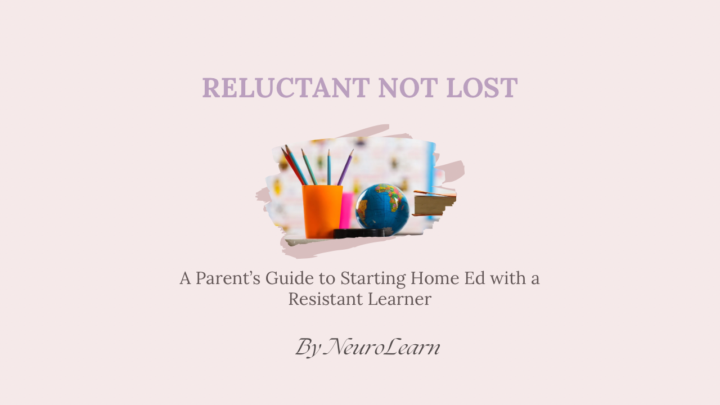
Write something
Your Guide to Independence for Kids 8+
I wrote this guide back when our children were 6, 7, 8 & 9 and each one has been through this with us. Multiple times. Sometimes we’d go through one page and call it a day, other times we’d refer back to the lessons in the book and remind them: they are strong, independent people who have a choice, a voice, and they know how to use it. By the time they were 8, 9, 10 & 11 they were ready for the world and the people in it. Our children have varying degrees of neurodivergent traits, and each one was able to understand each section clearly. Above all, it helped them see we are not the enemy - but the world has rules we all must follow. I hope this helps your children understand too. Two copies of this guide are posted, one for single parent families with “I” wording, and the other for two parent families with “We” wording.

Reluctant Learners? 👇🏻 See Here
Even if they say “I’ll do it” or “please, please I really want it”, it doesn’t always happen with Home Ed. Sometimes they beg and plead and tell you how bad school is, and you might have school on the phone telling you how disruptive your child is, or that they just won’t concentrate, or they’re defiant, argumentative, or worse… not attending at all. At some point we have to listen. Choose to listen to your child. Choose support, find out what works for them. If you chose to Home Educate, you’re thinking about it or you just want to look closer at problem areas to figure out what’s going on - try our Reluctant learner workbook. Inside the guide you’ll find: - A “Why School Didn’t Work” worksheet - A full learning profile builder - A tool to help spot hidden patterns and support needs - Tips on building structure without replicating school - A tracker for small wins (like “asked a question” or “read something new”) - Plus a day-planner template that works for kids who struggle to focus And more! It’s not a magic fix, but we’re using it ourselves and I have to say before, it was an absolute nightmare. 20% attendance, zero desire to learn. But… Two weeks in & we were smashing it! We got a full 3 months of focused brilliance because we took the time to figure out what was right for our child. Take the time, for them and for yourself. You’ll appreciate it later 🫶🏻
2
0

Quick Guide: Talking to Schools About IEPs
1. Before the Call • Write down your top 3 concerns right now (behaviour, learning, support staff, sensory needs, etc.). • Keep a notebook or notes app open, you’ll forget less if you jot while they talk. • Have last year’s IEP nearby for reference. 2. Core Questions to Ask Every Time 1. What’s working well from the current IEP? 2. What isn’t working or hasn’t been put in place yet? 3. How is progress being measured (tests, teacher observation, daily logs)? 4. Who is responsible for making sure each part actually happens? How often will we get updates on progress? 3. Things to Check Specifically • Support staff: Is there consistent 1-to-1 or small group help? Any staff changes? • Environment: Are there sensory breaks, quiet spaces, or seating adjustments? • Communication: How will the school keep you in the loop? (calls, emails, home-school diary) • Targets: Are they realistic, specific, and meaningful or vague like “improve concentration”? • Therapies: Speech, OT, counselling: are these written in, or just “suggested”? 4. Extra Questions Parents Often Forget • How will the IEP link to long-term goals (next stage of school, exams, independence)? • What training have staff had about my child’s needs? • How can I support the IEP at home and how can school support us at home? • If something isn’t working, how quickly can it be reviewed instead of waiting a full year? 5. During the Call • Repeat back key points to check you heard right. • Ask them to put any big decisions or promises in writing. • End with: “What’s the next step and who will contact me about it?” 6. After the Call • Write a short summary (date, who you spoke to, what was said, next steps). • Send a quick email: “Thanks for today, just to confirm we agreed… [list].” This protects you if things slip. Key Areas to Cover in Every IEP Discussion 1. Academic / Learning • How is work adapted for their level? • Are tasks broken down into smaller steps? • Are alternative methods used (visuals, technology, practical learning)?
0
0
Confidence & Healthy Boundaries
It’s showing our kids that limits can feel safe, that their voice matters even when there are rules, and that mistakes aren’t the end of the story, they’re part of learning. When we hold boundaries with empathy, we’re not shutting them down, we’re teaching them how to stand up, repair, and try again. This isn’t about raising kids who simply obey, it’s about raising kids who feel secure enough to grow into themselves. Check out our Classroom for our short courses aimed at helping you teach your child about building confidence, resilience and healthy boundaries 🫶🏻
0
0

Parents of Neurodivergent Children & Teens
This space is for the parenting side of life. Whether you’re newly navigating a diagnosis, fighting for support, questioning everything, or trying not to cry into your tea, you’re not alone. Post your questions, stories, rants, resources, or quiet wins here. Whether your kid is masking, melting down, or thriving, we’re here for the real kind of parenting. 🚫 No judgement. ✅ Lots of “same here.” Bonus: You’ll get lived experience and ND adult insight here, not the usual surface-level advice. There are 4 neurodivergent teens in my house, one in mainstream, one home educated and two in specialised schools - “been there, worn the t-shirt” doesn’t come close. Still here, still wearing it. I’ll always try to answer any questions, though please, post, share and communicate with each other in this space. We get it 🫶🏻
2
0
1-5 of 5
powered by
skool.com/neurolearn-1664
Neurodivergent-led learning for life.
Courses, guides & support for unmasking, self-regulation, home ed, & life skills built for ADHD, autism & beyond
Suggested communities
Powered by
